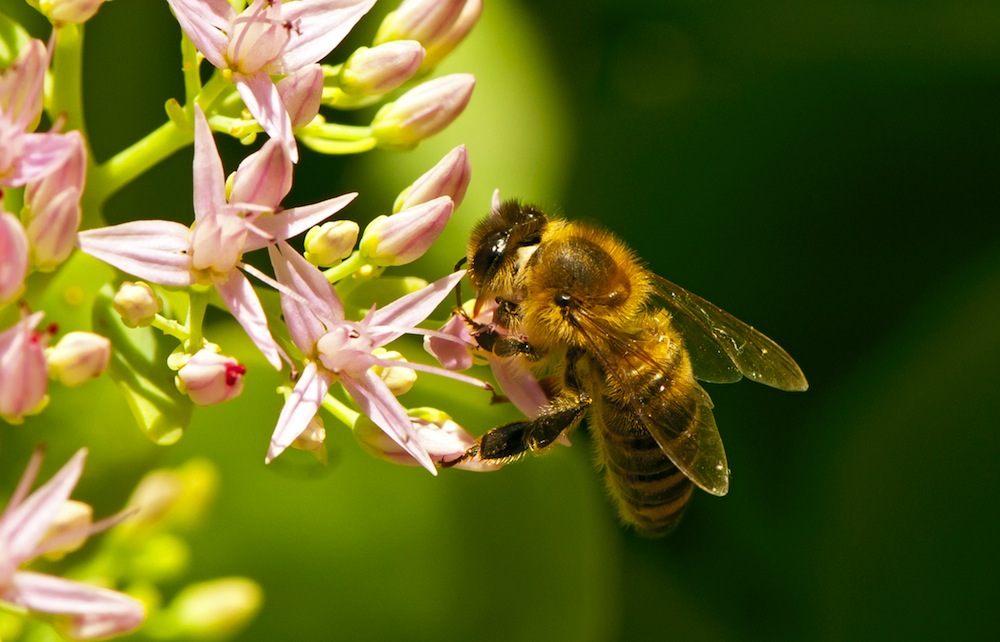Climate change — as it is for pretty much all life forms — is a huge bummer for bees. If neonics and other pesticides weren’t enough to deal with, a recent study demonstrated that global warming has fueled drastic bee habitat loss, leading to a 200-mile reduction in their natural environments. Something out in the great abyss has it out for the buzzers (hint: it’s CO2).
The video above, produced by the good folks over at High Country News, explores a curious new coupling between climate change and bee ecosystems. Because bees depend on flowers for food and flowers depend on bees for pollination, the two groups of organisms tend to sync up. (Remember scribbling “symbiotic relationship” into your high school biology notebook? It’s one of those.) And because climate change is fiddling with the times that flowers bloom, it means “we could have a situation where plants are available but bees are not active,” says Rebecca Irwin, an associate professor of applied ecology at North Carolina State University, in the video. “That’s going to be a problem for both parties.”
To try to examine some of the relationships at play, Irwin’s team is conducting some pretty fascinating experiments. By digging out trenches of snow near the end of winter, the researchers can coax some patches of flowers into blooming a bit earlier than others. In doing so, the team is effectively able to simulate pockets of climate change — consider a warming world with less extreme winters — and examine how the bee and flower populations interact in these areas. Without ample pollination, the early bloomers could be left with little reproductive success. Results of the experiments are pending.
Maybe you don’t give a shit about bees at all, but we assume you’re mildly interested in little things like “the produce section at Whole Foods” — which could disappear entirely if bees are wiped out. Check out the clip above to learn exactly how your salad mix could be at risk.




